Adam's Heart Valve Surgery Blog – Page 60
Congrats! We’re Over 10,000 Comments!
By Adam Pick on June 8, 2009
Everybody,
I just learned that we passed an incredible milestone for such a young website!!! Last week, the 10,000th comment was made at this heart valve blog!!!

I really, really, really, really want to thank all of you for contributing your thoughts, ideas, beliefs, advice and stories about heart valve surgery. Together, we are making a significant difference in the lives of current and future patients around the world!!!
Keep on tickin!
Adam
Patricia, 71, Experiences Hoarse Voice After Difficult Intubation
By Adam Pick on June 7, 2009
Thanks to a great support group and medical team, I made a full recovery after my double heart valve surgery. However, I did experience a series of physical and emotional challenges during my recovery. One of those challenges was specific to my voice. As Robyn (my wife) could tell you, my voice became incredibly hoarse following surgery.
So you know, I’m not the only patient that experienced a hoarse voice following cardiac surgery. Patricia, age 71, just sent me an interesting email which details her vocal problems following a difficult insertion of the ventilator tube. Here is what she writes:

Hi Adam – For two months after my aortic valve replacement I had great trouble talking. My surgeon told me that I had a “difficult intubation” during the procedure.
“Erectile Dysfunction and Aortic Valve Stenosis?” Asks Deana
By Adam Pick on June 6, 2009
I just received a unique question from Deana about aortic stenosis and erectile dysfunction.
She writes, “Hi Adam – My husband was just diagnosed this past January with aortic valve stenosis. His Cardiologist said that he was going to have to have open heart surgery to repair it. My question is can aortic stenosis cause erectile dysfunction? We have been trying to find a connection between those two and that is how we wound up on your web page. Any information you can give us would be great. Thank you, Deana”

When I don’t have a good answer to a patient question, I waste no time in “calling on the experts”. So, I emailed Dr. Eric Roselli, M.D., a leading cardiothoracic surgeon from The Cleveland Clinic. Minutes later, Dr. Roselli and I were on the phone chatting about Deana’s question. As aortic valve disease is one of Dr. Roselli’s specialties, he had A LOT of good information to share.
“Were You Denied A Robotic Mitral Valve Repair?” Asks Linda
By Adam Pick on June 6, 2009
I’ll never forget the day I opened the one-page letter from my insurance company, Blue Shield of California, which authorized my double heart valve replacement. I was beyond relieved given the mind-numbing frustration I experienced prior to that moment in dealing with Blue Shield.
I imagine I’m not the only patient that found themselves at war with their insurance company, right?
In fact, I just received an email from Linda which states, “Adam – I need help. I am looking for someone who has had robotic surgery and had it covered through HealthNet. Why? I was recently denied a robotic approach for mitral valve repair through HealthNet and I am in the process of appealing. I know this denial has been overturned in the past and I am looking for anyone who has been successful in doing this. Can you help?”
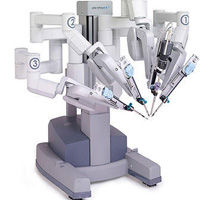
Given Linda’s question… Can you help her better understand the process for successfully appealing the request for robotic surgery to repair her mitral valve? If so, please leave a comment below. To learn more about robotic mitral valve repair surgery, click here.
In advance, thanks for your help!!!
Keep on tickin!
Adam
Anita, 58, Praises Dr. Gillinov & Shares Heart Valve Surgery Tips
By Adam Pick on June 3, 2009
The “preparation for heart valve surgery” seems to be a very popular, patient topic these days.
First, Sylvia sent me a special note about her extraordinary weight loss before aortic valve replacement. Then, a few days later, Anita sent me her ideas and tips about being mentally and physically fit for surgery. I thought you might like to read Anita’s note, so here it is:
Hi Adam,
My recent experience with mitral valve repair is something worth sharing. The surgery was done just four weeks ago (March 30, 2009) at The Cleveland Clinic, by Doctor A. Marc Gillinov.
Everything went smoothly, and the staff, including Dr. Gillinov, were amazed at how quickly my body healed. Dr. Gillinov stated that my initial recovery was two days ahead of most of his patients. My nurse practitioner called me her “WOW” patient. In total, I spent just 10 hours in intensive care and was discharged after only 3 days.

I was truly blessed to have surgery at The Cleveland Clinic. Not only were the doctors and staff experts in their field, but also they were extremely compassionate, caring human beings. Their kindness and expertise greatly helped my recovery.
I wanted to share some of the steps that I took to enhance my recovery:
“When Were You 100% Recovered From Open Heart Surgery?” Asks Holly
By Adam Pick on June 2, 2009
On the topic of heart valve surgery recovery, I just received a very important question from Holly.
Her note reads, “Hi Adam – I’m nervous, anxious, concerned, afraid, excited and, most importantly, hopeful regarding my mitral valve replacement surgery next week. I have severe regurgitation from mitral valve prolapse. Beyond the surgery, I want to know how long will it take to be 100% recovered. I am an active 66-year old that loves to chase my grandchildren around the park. Thank you, Holly”
As noted above, I believe Holly raises one of the most relevant questions for patients evaluating the entire heart valve surgery process, “How long does it take to feel 100% again?”
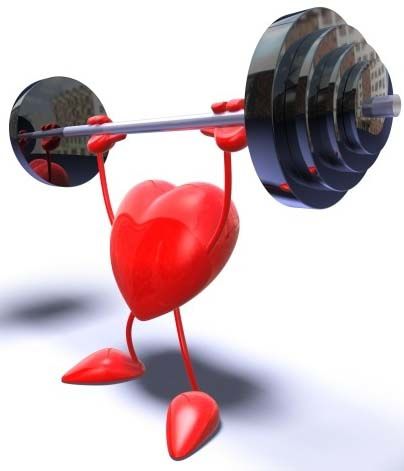
While this is a great question… I do not have a great, explicit answer which details a specific day or exact time in which patients consider themselves “fully recovered”.
Instead, I offer patients and caregivers an honest, two-word response to this inquiry.
Greece’s Ex-King Constantine Has Heart Valve Replacement Surgery
By Adam Pick on June 2, 2009
Heart valve disease really seems to be impacting royalty in 2009.
First, it was the Sultan of Malaysia, now it’s the former King of Greece… King Constantine.

Greece’s Former King Constantine – Heart Valve Patient
“King Constantine underwent successful aortic valve replacement and single aortocoronary bypass surgery at Wellington Hospital, London,” Professor Giles Dreyfus, who performed the procedure, said in a statement posted on Constantine’s website.
After 57 Cardiac Rehab Sessions, Charles Feels Very Fortunate
By Adam Pick on May 31, 2009
When talking with patients and caregivers about heart surgery recovery, I can never say enough about cardiac rehabilitation programs. I hear from patients over-and-over-and-over-and-over again about how valuable cardiac rehabilitation programs are for their physical, social and mental well-being after heart surgery.
Here’s a quick note I just received from Charles Harrall, an active 65-year old businessman from Nevada, about cardiac rehab, goal setting and medication management. Charles writes:
Hi Adam,
I am one year past my aortic valve replacement, mitral valve repair and a triple bypass.
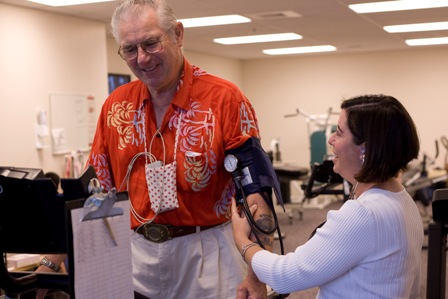
Patient At Cardiac Rehabilitation – On Treadmill
Mitral Valve Prolapse And Panic Attacks?
By Adam Pick on May 31, 2009
Janice has a question about mitral valve prolapse and panic attacks.
She writes to me, “Hi Adam – I’m curious to know if you’ve come across patients that have panic attacks and mitral valve prolapse? I’ve looked up the symptoms of mitral valve prolapse and I don’t see “panic attack” listed there, just anxiety. The reason I ask is my 59-year old husband was diagnosed with moderate-to-severe mitral regurgitation and I’ve noticed a very unusual, very anxious side to him lately. Is there any connection between this valve disease and panic attacks? Thanks, Janice”

So you know, Janice isn’t alone. I receive this question every once-and-a-while from patients and caregivers. Initially, my research did not suggest a direct connection between mitral valve prolapse and panic attacks. However, during the past few years more research about this co-occurrence has forced some members of the medical community to take a position on this condition.
At 73, Sylvia Woolworth Was Physically And Mentally Fit For Heart Valve Surgery
By Adam Pick on May 27, 2009
Here is a fantastic patient success story from 73-year old, Sylvia Woolworth, of New Jersey. As you can read below, Sylvia’s preparation for heart valve surgery was… extra-ordinary!
Hi Adam,
Five weeks ago, I had aortic valve replacement surgery. I was diagnosed with severe aortic stenosis although I had no symptoms except a heart murmur.

Thankfully, before my procedure, I read your book which greatly helped me prepare for surgery. My doctor, John M. Brown III, Chief Thoracic Surgeon at Morristown Memorial Hospital in Morristown, New Jersey, also prepared me during our face-to-face appointments.
I wanted to be in the best physical and mental condition for the operation. So, during the past twelve months, I lost 35 pounds. I went to the YMCA four-to-five days a week and I joined Weight Watchers to learn better eating habits.
Jenny Garth Reveals Leaky Heart Valve Diagnosis
By Adam Pick on May 27, 2009
It seems like 2009 could be “The Year Of The Celebrity Heart Valve Patient”.
In February, Barbara Bush had aortic valve replacement. Then, in March, Robin Williams had aortic valve replacement with a bovine valve and a mitral repair. Later that month, Aaron Boone, professional baseball player with the Houston Astros, had aortic valve repair.
Yesterday, we learned that actress Jenny Garth was diagnosed with a leaky heart valve over seven years ago.

Farmer & Triathlete, John O’Neill, Shares Inspirational Heart Valve Surgery Story
By Adam Pick on May 24, 2009
There is nothing better than waking up, kissing Ethan (my 6-week old son), turning on my computer, and opening an incredible email from one of my readers.
That said, I thought you might like to read this inspirational note from John O’Neill. As you can see, John discusses many of the experiences common to heart valve surgery patients – including symptoms, diagnosis, surgical care, genetics, recovery, cardiac rehab, Coumadin, etc. So, with John’s permission, I am posting his email below:
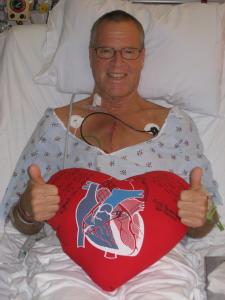
John O’Neill – Bicuspid Valve Replacement Patient
“Did Your Heart Pound Like Crazy After Valve Surgery?” Asks Josh
Written By: Adam Pick, Patient Advocate, Author & Website Founder
Page last updated: November 7, 2023
Josh just asked me an important, post-operative question about elevated heartbeat sensations after heart valve surgery and aneurysm repair. I responded below but, if you are a former patient, maybe you can help Josh by leaving a comment as well? Here is what he writes:
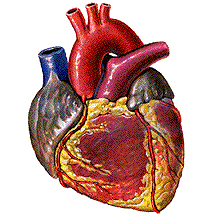
Can You Get Life Insurance After Heart Valve Surgery?
By Adam Pick on May 19, 2009
I’m not sure if you remember… But, I have been trying to get life insurance after my heart valve surgery for a lonnnnnnnnnnnnnng time.
During this process, I have been denied, even auto-denied, by some of the largest insurance carriers as soon as they learn that I had my aortic and pulmonary valves replaced.
Well… I have some good news to report!!!
The ‘Other Side’ Of Patient & Caregiver Fear
By Adam Pick on May 18, 2009
I receive many each day about heart valve surgery, from both patients and caregivers. Unfortunately, many of these emails begin with opening statements like:
- “Hi Adam – I am scared out of my mind right now, I was just diagnosed with severe aortic stenosis…”
- “Hi Adam – After monitoring my my mitral prolapse for 10 years, I need surgery. Needless to say I’m a wreck…”
- “Help Adam! My husband is going in for aortic valve replacement tomorrow. I can’t sleep I’m so scared…”
As you can tell, fear is the fundamental emotion expressed in these types of emails.
In the past, we have talked about fear on many occasions. We have turned it into an acronym as F.E.A.R. or Fantasized Experiences Appearing Real. And, I have posted clinical research to illustrate how to dispel your fear of heart surgery.
This morning, I read a wonderful quote from best-selling author, John Roger, that addresses this very common issue among patients and caregivers. Here is the quote:
You may be surprised to learn that negative conditions can actually lead to a positive place.
On the other side of loneliness is a beautiful place called solitude.
On the other side of rejection is the simply powerful place of acceptance.
I loved how this quote could be directly applied to the negative condition of fear. I even thought about how we could add one more line to this quote about heart valve surgery. It might read like this:
On the other side of heart surgery fear is courage, strength and, among all things, healthy hearts.
If you are fearful about an upcoming surgery or if you are struggling through your recovery, please remember that the odds are with you. As my mom said to me, “You can turn a heart valve lemon into heart valve lemonade.”
Keep on tickin!
Adam
Off-Topic: At 5 Weeks, Baby Ethan Is Yummy!
By Adam Pick on May 12, 2009
Thank you for all the wonderful notes regarding the birth of our son, Ethan.
Robyn (my wife) and I wanted to give you a quick update… Ethan is doing great!!! On Saturday, Ethan entered his fifth week of life. And, on Sunday, we celebrated Robyn’s first Mother’s Day.
As Ethan is our first child, we have quickly learned how wonderful it is to be parents. Yes, Robyn and I are very tired. Yes, we’re pee’d on regularly. Yes, he’s pooped on us. And… Yes, I’ve had the joy of “spit-up” splattering the side of my face several times. But, all it takes is one look from Ethan and all that discomfort becomes comfortable.
Here are some of the latest pictures we’ve taken of our little man.
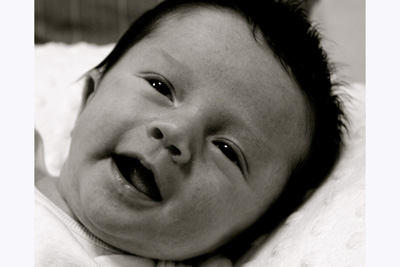
“How Long Were You In The Intensive Care Unit After Heart Surgery?” Asks Cindy
By Adam Pick on May 9, 2009
Cindy, from Illinois, just asked me a fantastic question about heart valve surgery and the intensive care unit (ICU).
Her email reads, “Adam – The time is finally here. After suffering from aortic stenosis for the past twelve months, I’m going in for heart valve replacement next week. Yes, I’m nervous. Yes, I’m anxious. Anyways, I have a question for you about the ICU. How long were you (and other patients) in the intensive care unit? I want to know what to expect and I want to make sure my family knows what to expect. Thanks, Cindy.”
To start, I want to acknowledge Cindy for asking an excellent question. In my opinion, expectation management is critical for patients and their caregivers. That said, I’d like to publicly say, “Great job Cindy!”
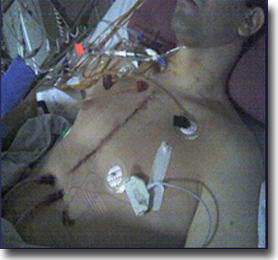
Me (Adam) In The Intensive Care Unit
“Is Constipation After Heart Surgery Normal?” Asks Dahlia
By Adam Pick on May 6, 2009
I just received a very important question from Dahlia about constipation and heart surgery.
She writes, “Adam – I’m quite embarrassed to be writing you about this but I just had mitral valve replacement surgery due to prolapse and leaky mitral valve. It’s been two weeks since my surgery and I’m incredibly constipated. Is constipation after heart surgery normal? Do you have any advice? Thanks, Dahlia”

Dahlia has ab-sooooooo-lutely nothing to be embarrassed about. So you know, it is very common for patients to experience constipation… And, it can be quite dangerous.
“Do All Heart Valve Surgery Patients Go To Cardiac Rehab?” Asks Eva
By Adam Pick on May 4, 2009
In response to a recent blog titled, “Do I Have Cardiac Depression?”, I just received a follow-up question from Eva. She writes, “Adam: Does every heart valve surgery patient go to cardiac rehabilitation?”
Specific to the recovery from heart surgery, I believe this is a great question for both patients (and their caregivers) to consider. That said, I asked this exact question to 75+ heart surgery patients, during a recent survey, to evaluate whether-or-not cardiac rehab was common among recovering heart surgery patients.
As you can see below, my research indicates that only 51% of patients surveyed did participate in a cardiac rehab program. So you know, I have a problem with that statistic. In my opinion, that survey result is wayyyyyyyyyy tooooooooo low.
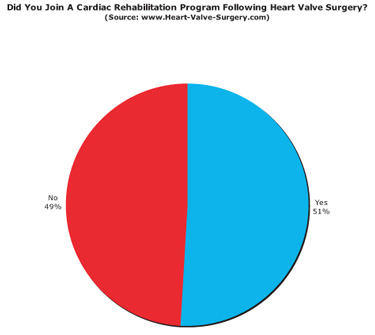
Mitral Regurgitation Forces Malaysian Sultan Into Heart Valve Repair Surgery
By Adam Pick on May 4, 2009
The Sultan of Selangor, Sultan Sharafuddin Idris Shah, is in stable condition after a 10-hour open-heart surgery on Saturday at the Stanford University Medical Centre in Palo Alto, California.
The sultan’s private aide, Kelvin Ong, said in statement here today that Sultan Sharafuddin, 63, was now recovering in the Intensive Care Unit of the medical centre after undergoing repair of a leaking valve for “mitral regurgitation”.

He said mitral valve regurgitation (leaking heart valve) surgery was recommended when a person’s ejection fraction — a measurement of the heart’s efficiency — dropped below 60 per cent and/or the left ventricle was larger than 40mm at rest. The ejection fraction could be used to estimate the function of the left ventricle, which pumps blood to the rest of the body, he said.




